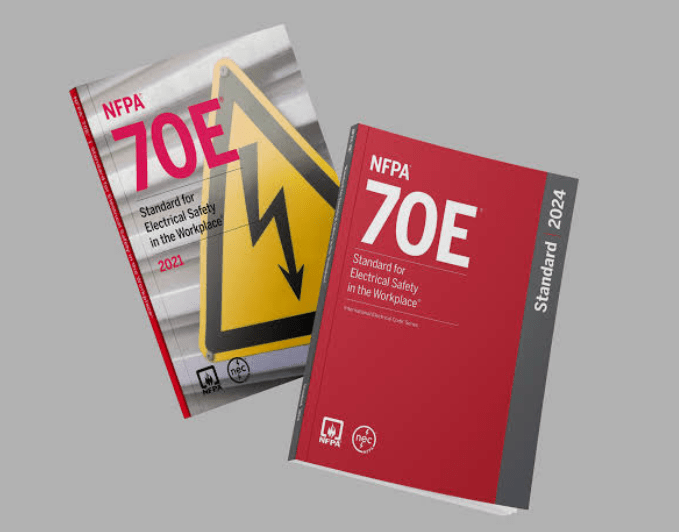Safety is a top priority when it comes to any workspace or home. Electrical safety plays a crucial role and sets the stage for successful operations. NFPA 70E is reserved for professionals who demonstrate mastery in this field to ensure the highest electrical safety standards are met. Certification to this program is a mark of excellence and shows attention to this most critical topic.
This NFPA 70e certification protects personnel and reduces their exposure to significant electrical hazards. To help reach this goal, it equips professionals with the specialized knowledge and skills necessary to uphold electrical safety standards. Not only does this certification provide electrical safety benefits to vulnerable personnel, but it has been designed to benefit other personnel within a company if applicable.
What is the NFPA 70E Certification?
The NFPA offers two key certifications related to electrical safety: the Certified Electrical Safety Compliance Professional (CESCP) and the Certified Electrical Safety Technician (CEST). The CESCP certification focuses on the practices and concepts found in NFPA 70E, Standard for Electrical Safety. This program is designed to meet the needs of electrical and safety professionals who oversee electrical safety programs.
In contrast, the CEST is a non-electrician’s electrical safety certification designed by the NFPA 70E. These certifications prove an individual’s competence in implementing safe work practices, effectively minimizing the risk of exposure to significant electrical hazards.
The Importance of NFPA 70E Certification
The NFPA 70E, also called the Standard for Electrical Safety in the Workplace, plays a crucial role in establishing a secure working environment for employees. It shields them from unacceptable electrical hazards, safeguarding their well-being.
1: Enhancing Safety Compliance
The NFPA 70e certification enhances electrical safety practices by equipping professionals with the knowledge and skills to comply with safety standards. These individuals are trained to manage electrical safety programs, oversee electrical workers, and ensure all procedures align with the NFPA 70E standard.
2: Setting Up an Effective Electrical Safety Program
Ensuring the safety of employees from electrical hazards encompasses more than simply comprehending the specifics of NFPA 70E. Employers must establish protocols, conduct thorough risk assessments, and ensure qualified individuals devise a comprehensive job safety plan. The NFPA 70e certification equips individuals with the knowledge to tackle these responsibilities effectively.
Online Training for NFPA 70E Certification
Some reputable training companies provide an exhaustive online training curriculum that equips individuals with a fundamental understanding of secure electrical work procedures. The course is grounded in the most recent regulations and norms, guaranteeing that the attendees acquire the necessary expertise to avert electrical mishaps.
By delving into the intricacies of electrical safety, the training reduces the risk of shocks and arc flashes and empowers individuals with practical strategies to mitigate these hazards effectively. With this training, individuals can confidently navigate the complexities of electrical work and contribute to a safer working environment.
How The NFPA 70E Certification Enhances Electrical Safety Practices – In Conclusion
The NFPA 70e certification plays a critical role in enhancing electrical safety practices. It equips professionals with the necessary skills and knowledge and ensures that workplaces are safer and free from electrical hazards. By investing in this certification, businesses can significantly reduce the risk of electrical accidents and ensure compliance with safety standards.
